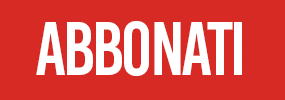Netanyahu nomina Ayelet Shaked - che ha chiesto il genocidio dei palestinesi - ministro della Giustizia nel nuovo governo
Il nuovo governo ha una maggioranza di 61 voti sui 120 della Knesset.
2773
Il primo ministro israeliano Benjamin Netanyahu ha deciso di nominare Ayelet Shaked come ministro della Giustizia nel suo quarto governo. Shaked è un membro della Knesset (MK), che rappresenta il partito di estrema destra, HaBayit Hayehudi ed è nota per le sue posizioni ultranazionaliste.
Durante l'attacco di Israele a Gaza ell'estate scorsa, come riporta MondoWeiss, la Shaked ha essenzialmente fatto appello al genocidio dei palestinesi . In un post su Facebook il 1° luglio, un giorno prima che estremisti israeliani rapisserp l'adolescente palestinese Muhammad Abu Khdeir e lo bruciassero vivo, il neo ministro ha affermato che "l'intero popolo palestinese è il nemico" e ha chiesto la sua distruzione, "compreso i suoi anziani e le sue donne, le sue città ei suoi villaggi, le sue proprietà e le sue infrastrutture".
Il suo post era costituito da un estratto di un articolo di Uri Elitzur, giornalista di destra e leader del movimento dei coloni israeliani, che cerca di colonizzare la terra palestinese in violazione del diritto internazionale.
La Shaked ha poi cancellato lo stato, che però alcuni hanno memorizzato. Eccolo:
This is an article by the late Uri Elitzur, which was written 12 years ago, but remained unpublished. It is as relevant today as it was at the time.
The Palestinian people has declared war on us, and we must respond with war. Not an operation, not a slow-moving one, not low-intensity, not controlled escalation, no destruction of terror infrastructure, no targeted killings. Enough with the oblique references. This is a war. Words have meanings. This is a war. It is not a war against terror, and not a war against extremists, and not even a war against the Palestinian Authority. These too are forms of avoiding reality. This is a war between two people. Who is the enemy? The Palestinian people. Why? Ask them, they started.
I don’t know why it’s so hard for us to define reality with the simple words that language puts at our disposal. Why do we have to make up a new name for the war every other week, just to avoid calling it by its name. What’s so horrifying about understanding that the entire Palestinian people is the enemy? Every war is between two peoples, and in every war the people who started the war, that whole people, is the enemy. A declaration of war is not a war crime. Responding with war certainly is not. Nor is the use of the word “war”, nor a clear definition who the enemy is. Au contraire: the morality of war (yes, there is such a thing) is founded on the assumption that there are wars in this world, and that war is not the normal state of things, and that in wars the enemy is usually an entire people, including its elderly and its women, its cities and its villages, its property and its infrastructure.
And the morality of war knows that it is not possible to refrain from hurting enemy civilians. It does not condemn the British air force, which bombed and totally destroyed the German city of Dresden, or the US planes that destroyed the cities of Poland and wrecked half of Budapest, places whose wretched residents had never done a thing to America, but which had to be destroyed in order to win the war against evil. The morals of war do not require that Russia be brought to trial, though it bombs and destroys towns and neighborhoods in Chechnya. It does not denounce the UN Peacekeeping Forces for killing hundreds of civilians in Angola, nor the NATO forces who bombed Milosevic’s Belgrade, a city with a million civilians, elderly, babies, women, and children. The morals of war accept as correct in principle, not only politically, what America has done in Afghanistan, including the massive bombing of populated places, including the creation of a refugee stream of hundreds of thousands of people who escaped the horrors of war, for thousands of whom there is no home to return to.
And in our war this is sevenfold more correct, because the enemy soldiers hide out among the population, and it is only through its support that they can fight. Behind every terrorist stand dozens of men and women, without whom he could not engage in terrorism. Actors in the war are those who incite in mosques, who write the murderous curricula for schools, who give shelter, who provide vehicles, and all those who honor and give them their moral support. They are all enemy combatants, and their blood shall be on all their heads. Now this also includes the mothers of the martyrs, who send them to hell with flowers and kisses. They should follow their sons, nothing would be more just. They should go, as should the physical homes in which they raised the snakes. Otherwise, more little snakes will be raised there.
Queste osservazioni hanno portato il presidente turco Recep Tayyip Erdoğan a paragonare la Shaked a Hitler . "Se queste parole fossero state dette da un palestinese, il mondo intero le avrebbe denunciate".
La Shaked è fermamente contraria a firmare qualsiasi accordo di pace con i palestinesi sulla base dei confini precedenti al 1967, sostenendo che un simile accordo costituirebbe "un suicidio nazionale". In campagna elettorale Netanyahu ha promesso che non ci sarebbe mai uno stato palestinese.
Con HaBayit Hayehudi, la coalizione di Netanyahu puà contare su 61 voti sui 120 della Knsset, una maggioranza risicatissima. La coalizione include il Likud, 30, Kulanu, 10, HaBayit Hayehudi, 8, il partito ultra-ortodosso Shas, 7; e l'altro partito religioso ultraortodosso United Torah Judaism, 6.
Queste osservazioni hanno portato il presidente turco Recep Tayyip Erdoğan a paragonare la Shaked a Hitler . "Se queste parole fossero state dette da un palestinese, il mondo intero le avrebbe denunciate".
La Shaked è fermamente contraria a firmare qualsiasi accordo di pace con i palestinesi sulla base dei confini precedenti al 1967, sostenendo che un simile accordo costituirebbe "un suicidio nazionale". In campagna elettorale Netanyahu ha promesso che non ci sarebbe mai uno stato palestinese.
Con HaBayit Hayehudi, la coalizione di Netanyahu puà contare su 61 voti sui 120 della Knsset, una maggioranza risicatissima. La coalizione include il Likud, 30, Kulanu, 10, HaBayit Hayehudi, 8, il partito ultra-ortodosso Shas, 7; e l'altro partito religioso ultraortodosso United Torah Judaism, 6.


1.gif)
